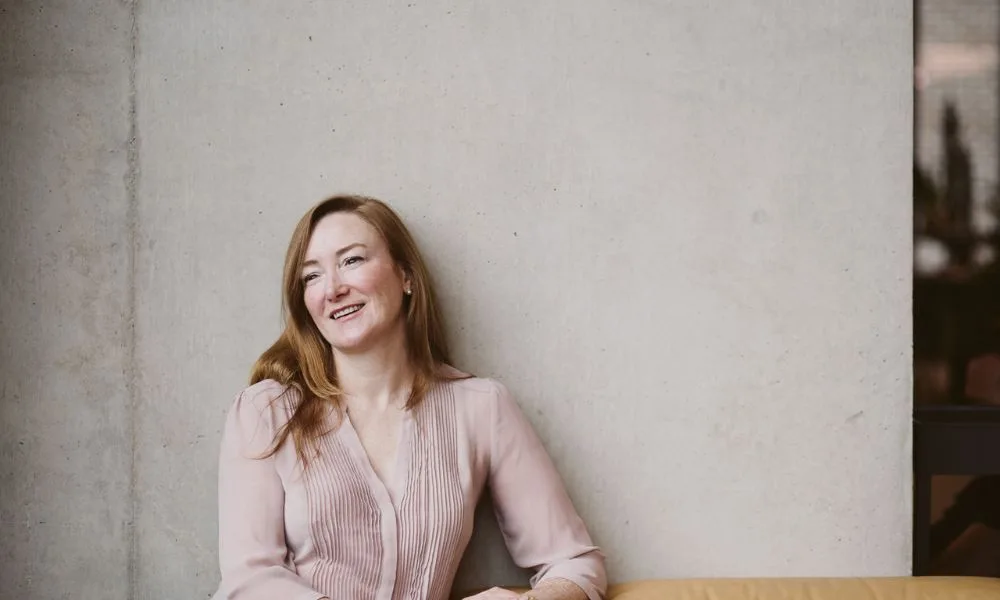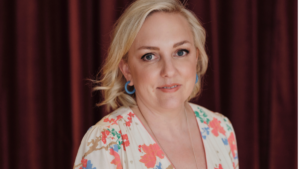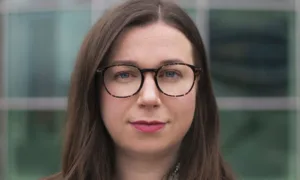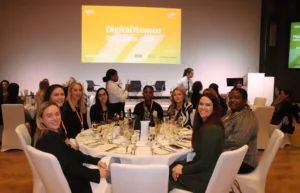Ally Owen founded Brixton Finishing School due to the need to create a diverse and equitable talent blueprint for our industry. Its award winning family of programs finds, trains and places ‘under-represented’ talent in roles across marketing, advertising and communications ecosystem. 2021 saw the launch of ADventure, which aims to introduce our industry to 100k diverse 14-18 year olds and Visible Start for women over 45s which is fighting ageism.
Allys’ accolades include Future is Female 2022 (ADweek), Media Leader 2022 (Judges’ Choice), Campaign 2021 Female Frontiers Championing Change Honouree/Campaign ‘Trailblazer’ 2020/ BIMA 2020 Champion for Change/ AD Age 2020 ‘Woman to watch in Europe’.
Why did you launch VisibleStart and what were you hoping to achieve?
A chance meeting brought Jane Evans, of The Uninvisibility Project and I together. I loved her mission – I’ve experienced ageism and am passionate about including all voices and talents in our industry. The more I learned about the cliff women’s career opportunities fall off at 45 the more determined I was to collaborate.
Jane and I embarked on our VisibleStart journey during the pandemic because it disproportionately affected middle-aged women, leaving many out of work. With nearly half in this age bracket not having any savings at all, it seemed like a no-brainer to create a programme designed to upskill, re-skill and support women into industry roles in high-demand areas like search, SEO, paid social and programmatic marketing.
There’s a bias towards young people in adland which is absurd, no formal education compares to the school of life and the soft skills you learn over time. But there are high-demand areas these women can move into if given the proper guidance, and given the confidence to do it again. They have a life’s worth of soft skills that are invaluable to employers. Our ethos is employment equity should be for ALL talent.
What are the biggest challenges, and opportunities for women in the industry today?
The biggest challenge is for women to remain visible and supported in a world that is skewed in favour towards their male counterparts. This isn’t just an issue in the ad industry today, it’s endemic across all sectors. It’s a social narrative that’s outdated and needs changing.
The ad industry has incubated a culture where the few women in creative departments disappeared over the last few decades. One-by-one they left, leaving white men in senior creative positions. We just don’t see women occupy those roles anymore. The onus isn’t on women to change, it’s on the higher echelons in corporate structures to integrate and promote them. Nearly half the population of the wider world are women, so why aren’t they in agency boardrooms too?
But the pandemic has created a shift that is working in our favour. By allowing us to work flexibly, women can work around their lives, easing the burdens of their home life responsibilities (that disproportionately affect them in comparison to men). We have always been ready to play in the big leagues, working with great clients and executing amazing ideas. We just needed not to be held back from doing so.
What does the industry need to do to better champion women?
Advertising is meant to reflect the society we live in. How can it be if there are only certain demographics represented in positions of power.
There are many talented women out there that agencies and brands are missing out on. The industry should be keen to get their input, recognise their potential and actively support them into roles at the highest levels. It is hygiene at this point to offer policies that support women, from childcare support, maternity leave, menopause support and education, but more can always be done to attract and retain female talent.
Listen to them, understand their needs, and work with women to ensure that they feel adequately supported. We also need to recognise the intersectionality of female experiences and build equity where it’s most needed – for example the latest MEFA matters report highlights the challenges Black female talent faces compared to their caucasian counterparts.
You work with a variety of companies across the digital ecosystem – what are the biggest challenges, and opportunities overall for digital advertising this year?
We work with all companies and brands that care about inclusion and want to garner and promote talent, from Dentsu to WPP to KFC and Kurt Geiger, for example. But we’ve listened and ad land is crying out for new perspectives.
Both talent and diverse communities feel like those creating the ads don’t know who they’re marketing to. And why would they? The people in those rooms are a homogenous group. The industry needs to reflect the real world we live in, the diversity we see on the pavement everyday.
This reflection can’t just be infront of the camera – behind it, across all levels and most importantly in the boardroom. Digital advertising needs to recognize that it’s both a challenge and an opportunity to ensure those in this space are representative.









